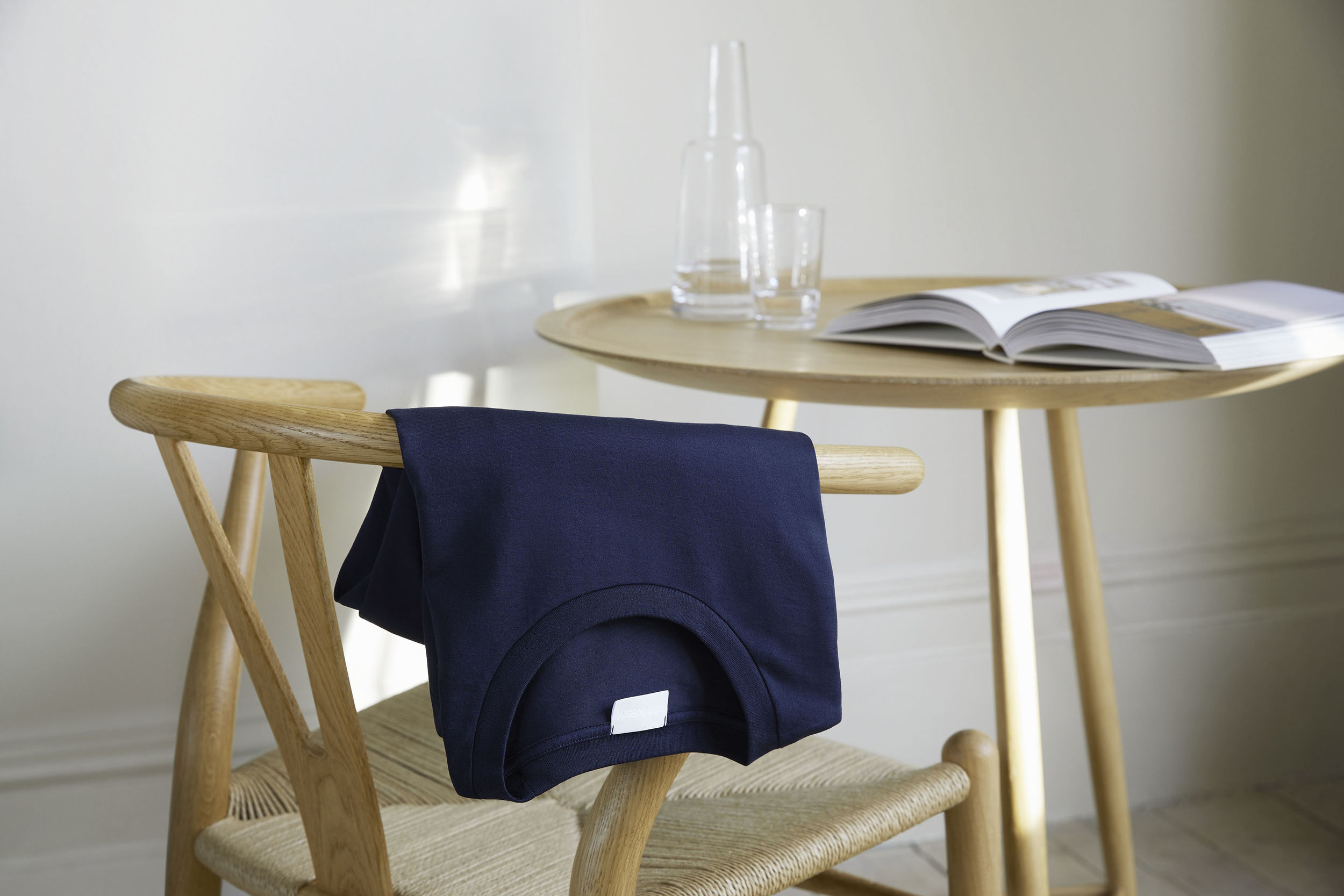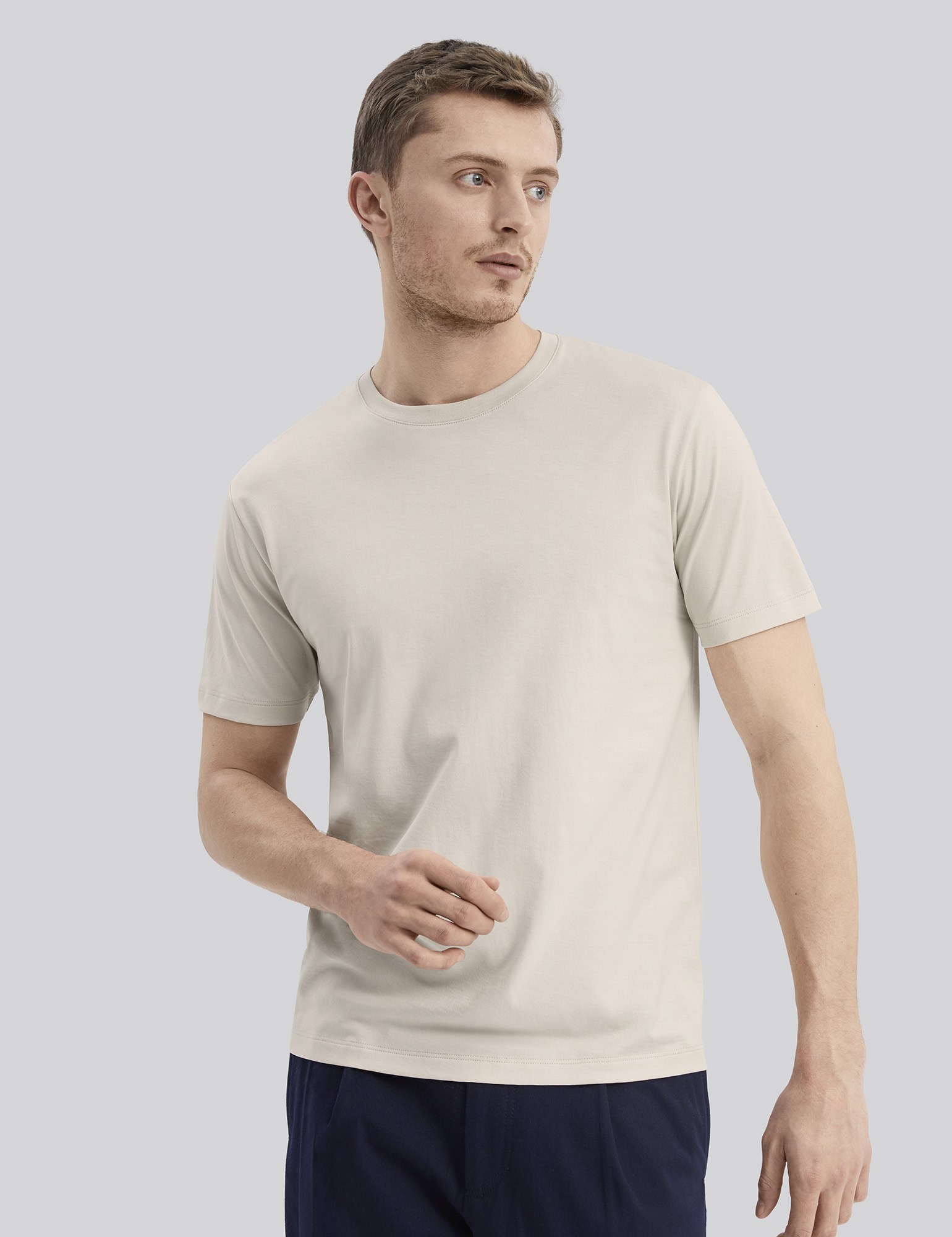
håndværk
The Perfect Tee?
The quick answer is, No.
The definition of “perfect” varies depending on who you ask. What might be perfect for you, is most likely not perfect for the next person.
As a nimble, independent brand, we’re able to keep our manufacturing small-scale. This allows us to maintain quality, uphold traceability and minimize waste. Being small-scale means that we can oversee the quality of our garments at every step of the way.
Applying a combination of innovation and time-honored techniques, we’re continually looking for ways to improve both the quality and sustainability of our t-shirts throughout the entire production journey.
With a deep-rooted manufacturing heritage, we honor the care, skill and thought that goes into making a product of real quality and integrity. We partner with makers who share our ethos: a commitment to the finest fabrics, immaculate finishing, and sustainable, ethical production.
We are disciplined in our choices, respectful of the resources we use, diligent about our impact, and mindful of where our pieces end up.
We’ve partnered with a specialized workshop in Chincha (Peru) that’s renowned for its first-rate production quality and forward-thinking approach to sustainability. From knitting and dying to cutting and hand-finishing, each part of the process is handled by a highly skilled team with extensive knowledge and experience.
What makes our t-shirts better is what happens behind the scenes, and so we want to highlight some of these efforts:
Sustainable Renewable Materials
We only use renewable Pima cotton grown in northern coastal Peru, where conditions are ideally suited to the crop, meaning less irrigation and intervention. The cotton used for our t-shirts is harvested by hand – which reduces its carbon footprint compared to industrial methods. It also preserves the staple length, which results in a naturally white yarn that doesn’t require bleaching and absorbs dye beautifully (reducing the dye quantities needed).
The quality of Peruvian Pima cotton is unmatched. Its extra-long fiber length gives it an incredibly soft, smooth feel and a bright luster. It is highly durable – up to 45% stronger than ordinary cotton – so it won’t pill or fray over time.
The pure, clean cotton fibers are also sorted by hand and then spun into yarns by our textile mill in Lima. We work carefully with them to engineer the finest yarns, such as our high-gauge, two-fold 80/2 flamed yarn that’s knitted into our super-soft jersey t-shirt fabric.
Keeping it Local
Our founder is Peruvian, hence our supply chains are local in Peru enhancing traceability and reducing carbon emissions. The entirety of our production process, from raw material to finished garment, is completed in Peru. In an industry in which even the most sustainable brands’ supply chains loop around the globe, this is rare.
Full Traceability
100% traceable, local manufacturing. We have decades long relationships with each of our suppliers. We visit the fields that grow our Peruvian Pima cotton, we are family with our yarn spinners, and the entirety of the production process (from knitting and dying to cutting and hand-finishing) takes place from a vertically integrated facility in Chincha, Peru – whose mission is to be the most sustainable factory in the world.
Single Fiber Focus
Our t-shirts are made from single-fiber fabrics rather than blends. This significantly improves a piece’s recyclability, making it easier to sort, break down and remake at the eventual end of its life.
Recycling
The in-house textile recycling facility repurposes up to 25,000 kgs of fabric offcuts every month. Clean, recycled water is supplied to irrigate local towns, and any residual textile waste is turned into blankets and distributed among disadvantaged communities.
Carbon Neutrality
Our Pima cotton garment manufacturing in Peru is already 100% Carbon Neutral, powered by renewable hydroelectric and solar energy. By 2025, 30% of this power will be self-generated with additional solar capacity.
Water Efficiency
Our factory’s in-house treatment plant uses ultrafiltration and reverse osmosis to cut water consumption, and every drop of wastewater is recycled eliminating waste and pollutants from the environment. Clean, recycled water is supplied to irrigate local towns. By 2025 our cotton textiles will use 66% less freshwater than standard.
Biodegradable Dyes
We use sustainable Earth Color pigments made using organic waste material, requiring 32% less water and creating drastically less toxic run-off.
Being A Good Human
We’re ensuring the highest possible working conditions for everyone involved in our production process. Well-being and social responsibility are essential; working conditions and pay are far above industry standard. Our t-shirt manufacturing partner is a certified B Corporation, the factory is also GOTS and OEKO-TEX compliant.






